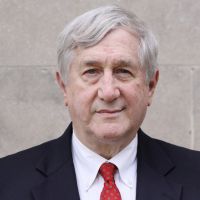Fruitland DUI-DWI Lawyer, Maryland
Sponsored Law Firm
-
 x
x

Click For More Info:
-
Roper & DiBlasio LLP
401 Headquarters Dr Ste 202 Millersville, MD 21108» view mapDivorce and Family Law Our Mission is Your Success
Roper & DiBlasio is a general practice law firm working within the local community to assist businesses, homeowners, and individuals with their legal needs.
800-785-7781
Not enough matches for Fruitland DUI-DWI lawyer.
Below are all Fruitland Criminal lawyers.
Harold Stanley Link
✓ VERIFIEDCriminal, Divorce & Family Law, Motor Vehicle, Accident & Injury, Wills & Probate
Owner and managing attorney of the Law Office of Harold S. Link, which has been affording quality legal services at an affordable price for more than ... (more)
Andrew M. MacDonald
Divorce & Family Law, White Collar Crime, DUI-DWI, Criminal, Bankruptcy
Status: In Good Standing
John Kevin Phoebus
Divorce & Family Law, DUI-DWI, Criminal, Contract, Personal Injury
Status: In Good Standing
Luke Americus Rommel
Criminal, Corporate, Personal Injury
Status: In Good Standing Licensed: 20 Years
 Kurt Roper Millersville, MD
Kurt Roper Millersville, MD Practice AreasExpertise
Practice AreasExpertise

